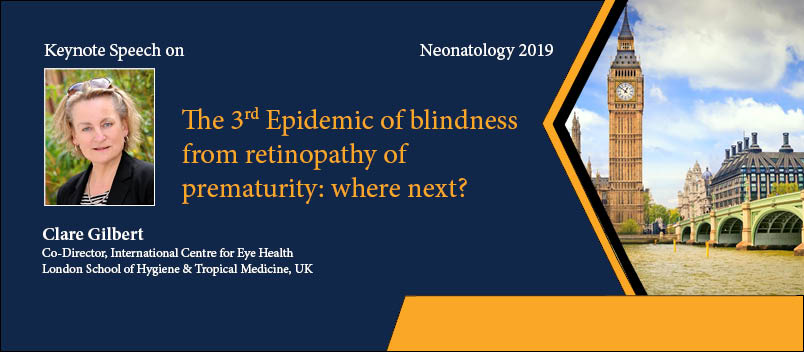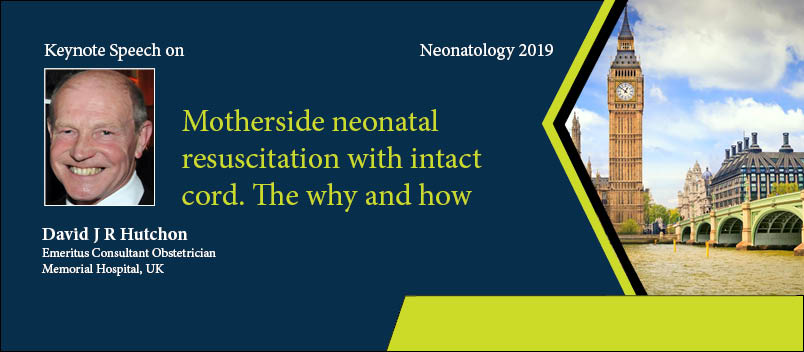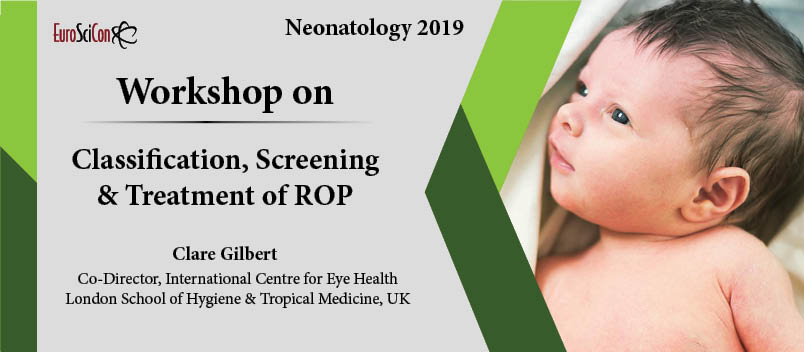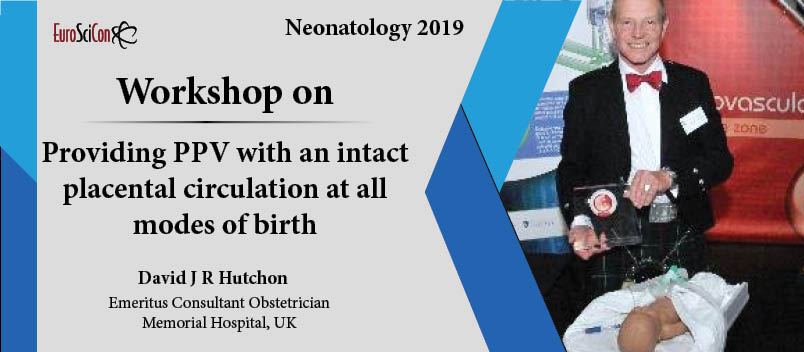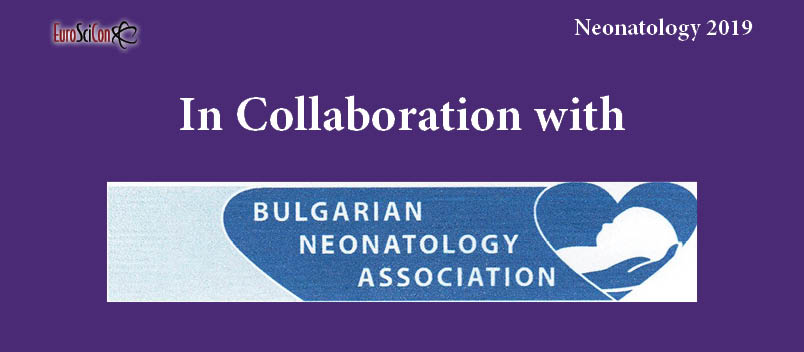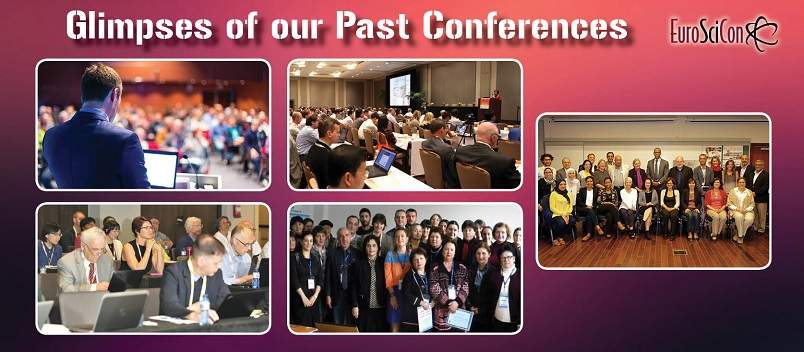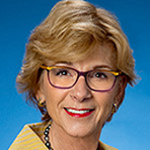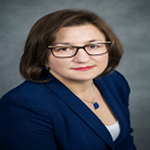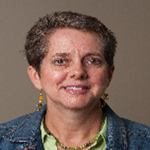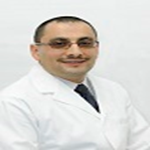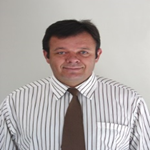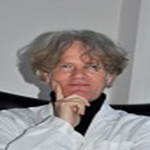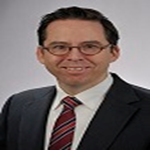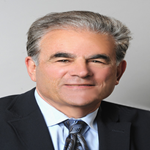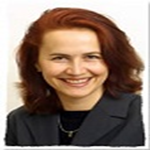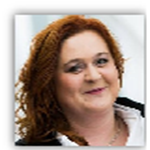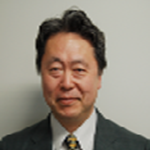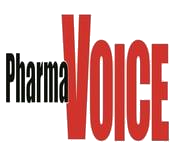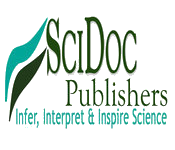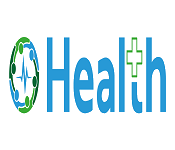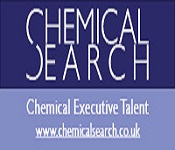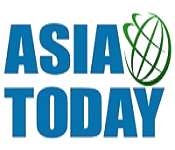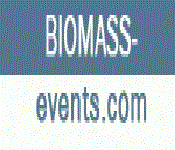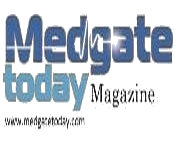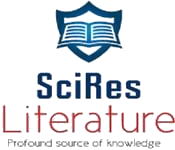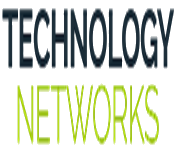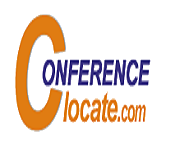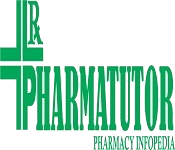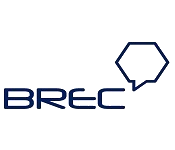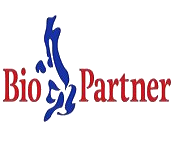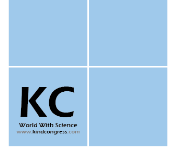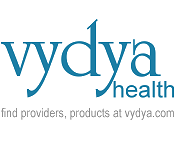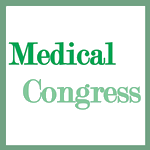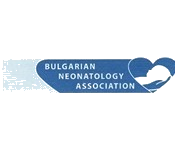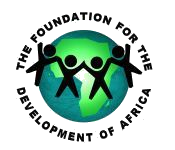Neonatology 2019
About Conference
23rd Edition of International Conference on Neonatology and Perinatology
EUROSCICON is buoyant to proclaim the launch of “23rd Edition of International Conference on Neonatology and Perinatology” in London, UK from April 23-24, 2019.
We amiably invite all the prominent scientists, students and ambassadors to engage in our Neonatology and perinatology conference to share and emphasize various research works and contribute to the vast growing field of neonatal and perinatal research.
Neonatology 2019 symposium targets the undiscovered phases of neonatal and perinatal research which gives an inimitable chance to researchers all over the world to participate, share and perceive new thoughts and also exploration work. Our theme “Devising modern techniques to improve Neonatal health” focuses on understanding the unknown facts of the neonatology, perinatology and its research. The three day conference embraces the workshops and keynote speech from some prominent researchers who outshine in the field of focus. This conference comprises the matters of neonatology such as Neonatal Jaundice, infant respiratory distress syndrome, Neonatal conjunctivitis, Neonatal stroke and many more. Our international conference also inspires the involvement of students, impending researches as we are compering Young research Forum and best poster award at our conference.
ABOUT US:
EUROSCICON is the longest running independent life science events company with a predominantly academic client base. Our multiprofessional and multispecialty approach creates a unique experience that cannot be found with a specialist society or commercially.
WHY NEONATOLOGY-2019?
This is one of the finest opportunities to engage with the eminent scholars from the area of neonatology. With your knowledge presented here for the benefit of the world you can inspire more people to enhance their research. Most prominent speakers, advanced technologies and discoveries in the field of neonatology and perinatology are the highlights of this three day conference.
MARKED SPECTATORS:
- Neonatologists
- Perinatologists
- Neonatal researchers
- Neonatal faculty
- Perinatal researchers
- Nurse Practitioners
- Physician Assistants
- Young researchers
- Aspiring students
- Medical Device Companies
- Residents
- THE ONE READING THIS!!
For Business Delegates:
- Speaker Presentations
- Symposium hosting
- Book Launch event
- Networking opportunities
- Audience participation
For Companies:
- Exhibitor and Vendor booths
- Sponsorships opportunities
- Product launch
- Workshop organizing
- Scientific Partnering
- Marketing and Networking with clients
EuroSciCon organizes International Meetings annually across Europe, Austria, Ireland, Germany, France, Liechtenstein, Lithuania, Finland, Luxembourg, Hungary, Italy, Norway, Poland, Denmark, Macedonia, Greece, Portugal, Romania, Czech Republic, Switzerland, United Kingdom, Belgium, Scotland, Latvia, Ukraine, Sweden, Denmark, Spain, Netherlands Russia, Bulgaria, France, with solitary subject of quickening logical revelations.
About London
London!! And there you have got one of the finest cities in the world. London is the capital and most populous city of England and the United Kingdom. Standing on the River Thames in the south east of the Island of Great Britain, London has been a major settlement for two millennia. London is a leading global city in the arts, commerce, education, entertainment, fashion, finance, healthcare, media, professional services, research and development, tourism and transportation. It is the world's largest financial centre and has the fifth or sixth largest metropolitan area GDP in the world. London is often regarded as a world cultural capital. It is the world's most-visited city as measured by international arrivals and has the world's largest city airport system measured by passenger traffic. It is the world's leading investment destination, hosting more international retailers and ultra-high-net-worth individuals in any other city. London's universities form the largest concentration of higher education institutes in Europe. Coming attractions of city, Starting from the Coca-Cola London Eye which is a major feature of London’s skyline, with a behind the scenes tour of the harry potter films at Warner Bros Studio. Soak up some culture at London museums; visit the Queen at Buckingham Palace, or take the perfect picture with Big Ben followed by the close experience with the underwater creatures at Sea life London Aquarium and also the Science museum which is the London’s interactive hub of Science and technology.
If you are curious London’s an amazing place to visit.
Sessions and Tracks
Track 1: Neonatology
Neonatology is a subspecialty of pediatrics that comprises of the therapeutic care of newborn children, particularly the untimely new born. It is a doctor's facility based strength, and is normally drilled in Neonatal Intensive Care Units (NICUs). The primary patients of neonatologists are newborn children who are sick or require extraordinary therapeutic care because of low birth weight, intrauterine development limitation, innate contortions (birth deserts), sepsis, pneumonic hypoplasia or birth asphyxia.
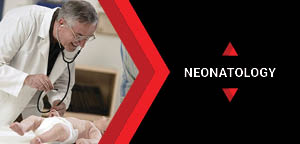
Track 2: Perinatology
Maternal– fetal drug (MFM) (otherwise called perinatology) is a branch of prescription that spotlights on overseeing wellbeing worries of the mother and baby before, amid, and soon after pregnancy. Maternal– fetal medicine specialists are doctors who subspecialize inside the field of obstetrics. Their preparation regularly incorporates a four-year obstetrics and gynecology residency and a three-year association in MFM. They may perform pre-birth tests, give medicines, and perform medical procedures. They act both as a counsel amid bring down hazard pregnancies, and as the essential obstetrician in particularly high-chance pregnancies. After birth, they may work intimately with pediatricians or neonatologists. For the mother, perinatologists help with previous wellbeing worries, and also entanglements caused by pregnancy.
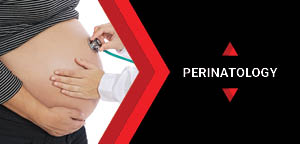
Track 3: Prenatal Birth Tests
Prenatal paternity testing is a sensitive subject because of the ethical and moral issues involved, including the risks of an invasive test (see below). Many doctors are unwilling to carry out a prenatal paternity test, especially if confirming the baby's father's identity is the only reason for the test.
For example, if a prenatal paternity test is carried out and the test result is unexpected, the woman may not want to continue with the pregnancy. An unwanted paternity test result is, however, unlikely to be considered adequate grounds for terminating a pregnancy (abortion).
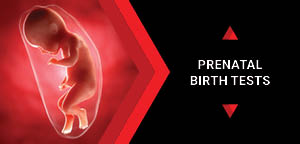
Track 4: Neonatal Research
The exploration regions in the field of Neonatology involve a broad accumulation of different research locales or specialities from both clinical and fundamental sciences. Divisions like Pulmonary and formative Biology in relationship with Perinatal Biology has coordinated efforts with pediatrics for more research in the zone of neonatology.
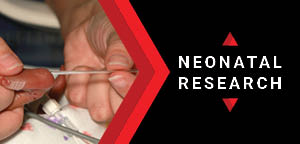
Track 5: Neonatal Neurology
The central nervous system of a growing foetus begins with a basic structure called the 'neural notch' that folds in to shape the 'neural tube'. This at that point forms into the spinal line and mind. By day 28 after origination, the neural tube ought to be shut and melded. On the off chance that it doesn't close, the outcome is a neural tube deformity. Much of the time, these deformities can be determined amid pregnancy to have ultrasound filters and, infrequently, with different tests, for example, amniocentesis (investigating an example of amniotic liquid).
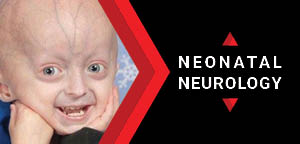
Track 6: Neonatal Surgery
Neonatal surgery is sub-strength of pediatric medical procedure. A general specialist can perform medical procedure on grown-ups and kids, however pediatric specialists have the propelled training and aptitudes important to perform medical procedure on babies and exceptionally youthful youngsters. The Neonatal surgeries are exceptionally sensitive and confused medical procedures which are performed by subspecialists like perinatologists, neonatologists, pediatric cardiologists, pediatric neurosurgeons and pediatric anaesthesiologists. Surgeries are done when oddities have been seen in pre-birth screening. These techniques can some of the time be performed when the child is still in the womb.
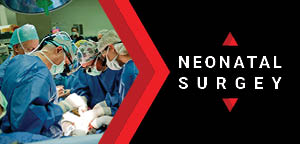
Track 7: Cardiovascular Problems in Neonates
In infants and little children, intrinsic coronary illness can have a scope of side effects on the grounds that each tyke and condition is unique. More typical side effects incorporate outrageous tiredness, poor bolstering, unnecessary sweating, fast pulse, breathing issues, chest torment and a blue tinge to the skin.
Cardio beginning is an imperative part in fetal improvement as heart is the principal organ to shape. Negligible changes or breakdowns in this procedure may prompt intrinsic heart abandons (CHDs). CHD is the most widely recognized inborn issue in new-borns. Some new-borns with intense CHD are symptomatic and are recognized not long after birth while others are not distinguished until the point that they are released from the doctor's facility.
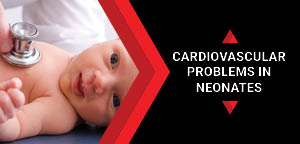
Track 8: Neonatal Nutrition
Infant and New born Nutrition is the description of the dietary needs of new borns and infants. Food provides the energy and nutrients that infants need to be healthy. An adequate intake in nutrient rich food is good nutrition. An infant diet lacking essential calories, minerals, fluid and vitamins could be considered 'bad' nutrition. For a baby, breast milk is "best". It has all the necessary vitamins and minerals. Infant formulas are available for babies whose mothers are not able or decide not to breastfeed. Infants usually start eating solid foods between 4 and 6 months of age. Clinicians can be consulted to determine what is best for each baby. If a food introduced one at a time, a potential allergen can be identified.
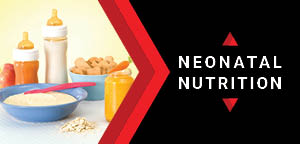
Track 9: Neonatal Eye Problems
Retinopathy of prematurity is a potentially blinding complication of preterm birth. The condition starts within a few weeks of birth and can progress rapidly over the following few weeks, or regress spontaneously. The international classification describes 5 stages, 3 zones, and plus disease (tortuosity and dilation of retinal blood vessels). In 2010 the annual incidence of blindness or visual impairment from ROP was estimated to affect 32,000 infants born preterm. All regions are now affected.
Risk factors for ROP include increasing prematurity, intrauterine fetal growth restriction and a range of postnatal risk factors including hyperoxia and fluctuating hypo-/hyperoxia, sepsis, failure to gain weight, thrombocytopenia and transfusion with blood products. Infants who are unstable, and who develop necrotising enterocolitis and bronchopulmonary dyplasia are particularly at risk.
Control of visual loss from ROP entails the following:
- Reducing preterm birth rates;
- A course of antenatal steroids to women threatening preterm delivery according to WHO indications and recommendations;
- Gentle resuscitation of preterm newborns, such as delayed cord clamping and avoiding supplemental oxygen and ventilation unless necessary;
- High quality neonatal care to reduce exposure to risk factors, with supportive care;
- Regular screening of infants at risk, starting within a few weeks of birth, to detect those with the constellation signs of ROP where there is a significant risk of progression to blinding retinal detachment (i.e., 15% risk, described as Type 1 ROP);
- Urgent treatment (within 48-72 hours) when indicated by a skilled ophthalmologist;
- Long term follow up to detect and manage other conditions which are much more common in preterm infants who develop ROP, including high degrees of short-sightedness (high myopia), squint, and cortical vision impairment.
A range of professionals have important roles to play in reducing blindness or disability from ROP including obstetricians, gynaecologists and midwives; neonatologists, paediatricians and neonatal nurses, and ophthalmologists and optometrists. In addition, early vision rehabilitation can help overcome the developmental delay associated with profound vision loss of early onset.
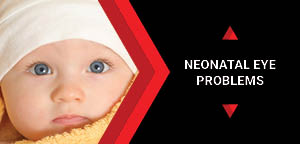
Track 10: Neonatal Respiratory Disorders
Neonatal respiratory distress syndrome (NRDS) is more typical in untimely infants conceived a month and a half or more before their due dates. It more often than not creates inside the initial 24 hours after birth.
Side effects incorporate fast, shallow breathing and a sharp, pulling-in of the chest underneath and between the ribs with every breath. Treatment incorporates drug to keep the lungs open, breathing help and oxygen treatment. Respiratory trouble in the neonate most ordinarily exhibits as one or the greater part of the accompanying physical signs: tachypnea, snorting, nasal flaring, withdrawals, and cyanosis. A typical respiratory rate in another conceived is in the vicinity of 30 and 60 breaths/min.
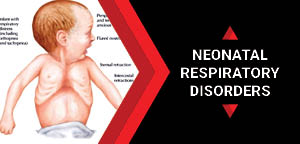
Track 11: Gastrointestinal Problems in Neonates
Capacity to eat and process sustenance is vital for development and vitality necessities of a New conceived. Neonates are additionally powerless to different gastrointestinal issue and may require surgeries like inguinal hernia, ileac aperture etcetera. These clutters avoid typical assimilation and make aggravation child. Most children can retain supplements and have typical solid discharges subsequent to being bolstered. The side effects, for example, Vomiting, Spitting up and spilling milk with burps or after feedings is genuinely normal in new conceived and may show the infant is having gastrointestinal issues.
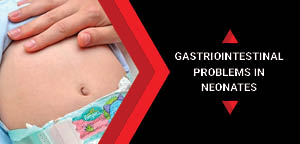
Track 12: Neonatal Skin Related Disorders
Skin issues are normal in the new born children because of low insusceptibility and may intensify into pre-adulthood. Disease and irritation with rashes and skin pigmentations are usually watched. A large portion of the cases demonstrate transitory issues while in outstanding cases; the new born child requires treatment and long haul examination. Erythema toxicum neonatorum is an amiable, self-constrained, asymptomatic skin condition that lone happens amid the neonatal period. It is a standout amongst the most widely recognized honest and self-restricted skin rashes predominantly in full-term new borns. The condition influences 30-70% of the new borns.
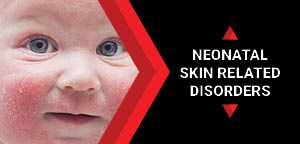
Track 13: Neonatal Blood Disorders
Among the potential reasons for neonatal draining are platelet issue, neonatal haemophilia and other inherent clotting factor insufficiencies, vitamin K inadequacy disorders, liver disappointment, and dispersed intravascular coagulation. Working of blood is mind boggling and basic forever; Due to this unpredictability tremendous illnesses have been seen if there should be an occurrence of neonates like frailty, draining and youth leukaemia. The blood issue in the new born children are for the most part because of the red platelets. Legitimate distinguishing proof and treatment is essential for a long haul impact. Neonatal alloimmune thrombocytopenia (NAIT) is a condition that is in charge of extreme dangerous seeping of the new-born.
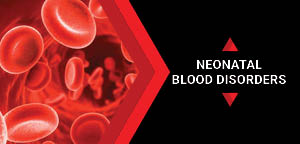
Track 14: Neonatal-Perinatal Medicine
Neonatal-perinatal medication is uneasy about the care of sick infants and it is a subspecialty of pediatrics. Neonatologists treat the evil conditions and work as per obstetricians, paediatricians and Perinatologists. This branch particularly manages both the baby and the mother with respect to the dangers related amid pregnancy. Infant concentrated care units of a doctor's facility screen the neonatal issues and give ideal treatment.
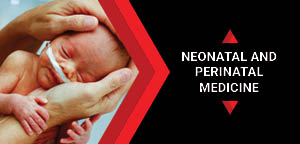
Track 15: Neonatal Syndromes
Congenital disorder exists in a newborn child even before birth and is call as birth imperfection. Basic variations from the norm are the most widely recognized kind of inherent imperfections. Causes and indications are variable. The substance which causes an irregularity in newborn children is called as teratogen. A few issue can be identified through pre-birth screening. Hereditary disorders in infant's are analysed after birth. The vast majority of the deformities are caused because of legacy and are for the most part uncommon. Guys more often than not have undescended gonads. Little hands and feet, and almond-molded eyes, are not helpful symptomatic highlights in infants. A particular territory on the long arm of chromosome 15 is associated with the etiology of Prader– Willi disorder. The danger of repeat for Prader– Willi disorder is generally low.
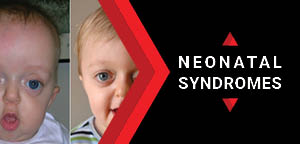
Track 16: Neonatal Infections
Neonatal diseases are contaminations of the neonate (new conceived) amid the neonatal period or initial a month after birth. Neonatal contaminations might be shrunk by transplacental move in utero, in the birth channel amid conveyance (perinatal), or by different means after birth.
Neonatal sepsis is a type of neonatal infection in which a blood stream infection is observed and it causes various other diseases. Neonatal sepsis is of two types: early and late onset. Cause of neonatal death in hospital as well as community in developing country.
Neonatal herpes simplex is a serious and very rare case which is caused by the transmission of the virus from mother to the foetus.
Neonatal tetanus is a form of general tetanus that affects the infants who did not procure passive immunity from the mother. This condition is mainly caused when the umbilical cord is cut with a non-sterile instrument.
Neonatal hepatitis is tenderness of the liver which occurs in a two month baby. Various virus like cytomegalovirus and hepatitis A, B or C viruses are the cause of 20% of neonatal hepatitis. Unknown conditions prevail for the remaining.
Neonatal conjunctivitis or ophthalmia neonatorum is the conjunctivitis caused in infant which is contracted to the baby from the mother affected with chlamydia or Neisseria gonorrhoea. It causes blindness when left untreated.
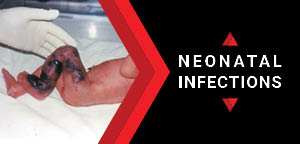
Track 17: Neonatal Genetic Disorders
There are currently a large number of single-quality issue that are very much described, with a few being perceived in the neonatal period, for example, cystic fibrosis, phenylketonuria, spinal strong decay, intrinsic adrenal hyperplasia and Stickler disorder. A variation from the norm in the hereditary constitution causes a hereditary deformity which is additionally called as inherent anomaly. These kinds of scatters are extremely uncommon and require unique therapeutic consideration. This variation from the norm emerges because of innate from the parent qualities which might be caused because of transformations or deviations of DNA. Medicinal consideration and care is the treatment for these deformities.
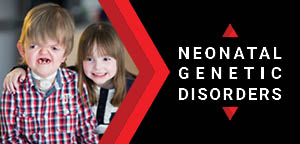
Track 18: Congenital malformations & Birth Complications
New conceived intrinsic peculiarities, frequently alluded to as birth absconds, have an assortment of causes going from pregnancy or birth confusions to hereditary deformities to viral diseases in utero. Much of the time, be that as it may, an inborn abnormality may have no known reason.
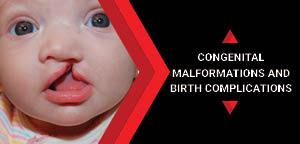
Track 19: Neonatal Nursing
Neonatal nursing is a subspecialty of nursing that works with babies conceived with an assortment of issues running from rashness, birth abandons, contamination, heart contortions, and careful issues. The neonatal period is characterized as the main month of life; in any case, these babies are regularly debilitated for quite a long time.
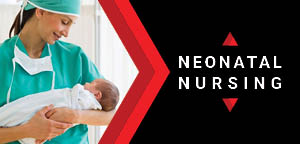
Track 20: Neonatal Infectious Diseases & Antibiotics
Neonatal contaminations are diseases of the neonate (infant) amid the neonatal period or initial a month after birth. Neonatal diseases might be shrunk by trans placental move in utero, in the birth trench amid conveyance (perinatal), or by different means after birth. Some neonatal diseases are clear not long after conveyance, while others may create baby blues inside the main week or month. A few diseases obtained in the neonatal period don't end up clear until considerably later, for example, HIV, hepatitis B and jungle fever.
There is a higher danger of contamination for preterm or low birth weight neonates. Respiratory tract diseases shrunk by preterm neonates may proceed into youth or potentially adulthood with long haul impacts that breaking point one's capacity to participate in typical physical exercises, diminishing one's personal satisfaction and expanding social insurance costs. In a few examples, neonatal respiratory tract contaminations may expand one's defenselessness to future respiratory contaminations and provocative reactions identified with lung illness.
Anti-infection agents can be viable medicines for neonatal diseases, particularly when the pathogen is immediately distinguished. Rather than depending exclusively on refined systems, pathogen recognizable proof has enhanced considerably with propelling innovation; in any case, neonate mortality lessening has not kept pace and remains 0% to 0%. While preterm neonates are at an especially high hazard, full term and post-term newborn children can likewise create disease. Neonatal contamination may likewise be related with untimely crack of layers (breakage of the amniotic sac) which significantly builds the danger of neonatal sepsis by enabling section for microbes to enter the womb before the introduction of the baby. Neonatal contamination can be upsetting to the family and it starts concentrated push to treat it by clinicians. Research to enhance treatment of contaminations and prophylactic treatment of the mother to maintain a strategic distance from diseases of the newborn child is on-going.
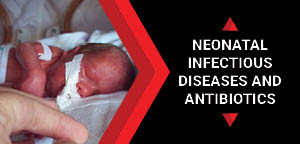
Track 21: Neonatal Disorders
Sicknesses existing during childbirth and regularly before birth, or that create amid the principal month of life (INFANT, NEWBORN, DISEASES), paying little heed to causation. Of these illnesses, those described by basic disfigurements are named ABNORMALITIES. Different scatters are seen in neonates because of their metabolic glitches or hereditary deformities.
Neonatal jaundice is additionally called as neonatal hyperbilirubinemia. It is the yellowing of the skin and different tissues of another conceived. Yellow shading of the white piece of eye and the face is the particular indication of baby jaundice.
Neonatal diabetes mellitus is a type of diabetes that is uncommon, happening in 1:500000 births. New born children don't deliver required measures of insulin which prompts hyperglycaemia. This is called changeless neonatal diabetes mellitus and is relentless all through life.
Neonatal hypoglycaemia is a disease where sugar levels in blood are insufficient. This if untreated prompts the mind damage that may cause issue of tyke improvement later.
Neonatal cholestasis is where high measures of bilirubin are watched. Deformities in bile stream or glitch of bile from liver cells may likewise cause this issue.
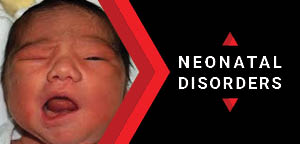
Track 22: Neonatal intensive care unit (NICU)
A neonatal emergency unit, (otherwise called an escalated mind nursery (ICN), is an emergency unit under the watchful eye of sick or untimely babies. Neonatal alludes to the initial 28 days of life. Neonatal care, as known as particular nurseries or serious care has been around since the 1960s. NICU is regularly coordinated by at least one neonatologist and staffed by attendants, nurture experts, drug specialists, doctor colleagues, occupant doctors, respiratory advisors, and dieticians. Numerous other subordinate orders and masters are accessible at bigger units. The term neonatal originates from neo, "new", and natal, "relating to birth or starting point". Neonatal medical caretaker professionals are propelled hone nurture that watch over untimely infants and wiped out babies in serious care units, crisis rooms, conveyance rooms, and exceptional centres. Rashness is a hazard factor that takes after early work, an arranged caesarean segment, or pre-eclampsia.
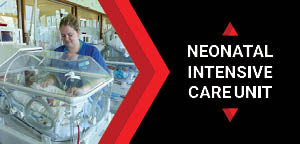
Track 23: Vaccination and Immunization
Infusion of an executed organism with a specific end goal to fortify the invulnerable framework against the microorganism, consequently averting illness. Inoculations, or vaccinations, work by empowering the safe framework, the common malady battling arrangement of the body. The sound safe framework can perceive attacking microorganisms and infections and deliver substances (antibodies) to obliterate or debilitate them. Vaccinations set up the safe framework to avert a sickness. To inoculate against viral maladies, the infection utilized as a part of the antibody has been debilitated or murdered.
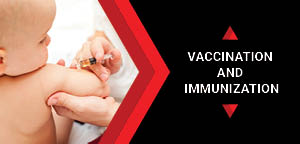
Track 24: Stem Cell Therapy
Undeveloped cells are a class of undifferentiated cells that can separate into particular cell writes. Regularly, undifferentiated cells originate from two primary sources: Incipient organisms framed amid the blastocyst period of embryological improvement (embryonic foundational microorganisms) and Grown-up tissue (grown-up immature microorganisms).The two sorts are for the most part portrayed by their intensity, or potential to separate into various cell composes, (for example, skin, muscle, bone, and so forth.)
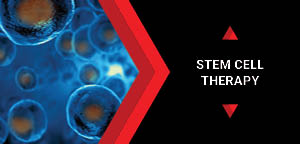
Past Conference Report
Neonatology 2018 Report:
The 22nd Edition of International Conference on Neonatology was held on May 7-8, 2018 in Vienna, Frankfurt, Germany with the presence of professional researchers, scientists involved in the development of high-quality education & research in all aspects.
Neonatology 2018 witnessed an amalgamation of peerless speakers who enlightened the crowd with their knowledge and confabulated on various topics related to the field of Neonatology and Pediatrics. The highly exalted conference hosted by EuroSciCon was marked with the attendance of renowned and brilliant researchers, business delegates and talented student communities representing more than 20 countries around the world. The conference has tried grounding every aspect related to Neonatology, covering all the possible research areas.
The conference aimed a parallel rail with theme “Bridging excellence and inspiring innovations in Neonatology and Perinatology”. The meeting engrossed a vicinity of cognizant discussions on Recent Developments in Neonatology, Perinatology, Neonatal Research, Neonatal Neurology, Neonatal Surgery, Cardiovascular Problems in Neonates, Neonatal Respiratory Disorders, Neonatal Skin Related Disorders, Neonatal Blood Disorders, Neonatal-Perinatal Medicine, Neonatal Syndromes, Neonatal Infections, Neonatal Genetic Disorders, Congenital Malformations & Birth Complications, Neonatal Nursing and Neonatal Infectious Diseases & Antibiotics. The two days event implanted a firm relation of upcoming strategies in the field of Neonatology with the scientific community. The conceptual and applicable knowledge shared, will also foster organizational collaborations to nurture scientific accelerations.
We are thankful to all our speakers for encouraging and supporting us to conduct the conference and catapulting the same to pinnacle of success.
The Organizing Committee would like to thank the moderator: Jaqueline Andrews, NSW Health, Australia, Geetha Aurora, Bubbles OT Clinic, India and Dr. Sajjad ur Rahman, HMG Hospital, Al Qassim Saudi Arabia for their valuable contribution which resulted in smooth functioning of the conference.
The meeting was embarked with an opening ceremony followed by Keynote Sessions and followed by series of lectures delivered by Honorable Guests and members of the Keynote forum. The highlights of the meeting were the eponymous lectures, delivered by:
Ryszard Lauterbach, Jagellonian University, Poland
Michael Stark, New European Surgical Academy, Germany
Hippolite O Amadi, Imperial College London,United Kingdom
Inge Schmitz-Feuerhake, Society for Radiation Protection, Grenzstraße, Germany
Udo B Hoyme, Ilm-Kreis-Kliniken, Germany
Luka van Leugenhaege, Artesis Plantijn University College, Belgium
Pages Anne-Sophie, Centre Hospitalier Public du Cotentin, France
SVNS Sowjanya, Mehta Multispeciality Hospital, India
Marie fabre grenet, University hospital in Marseilles, France
Christy Varghese, Manchester, UK
Murod M. Jafarov, Tashkent pediatric medical Institute, Uzbekistan
Shailesh Adhikary, BP Koirala Institute of Health Sciences, Nepal
Ubaidullah khan, Al Hada Armed forces hospital, Saudi Arabia
Taketoshi Yoshida, Toyama university hospital, Japan
Sajjad ur Rahman, HMG Hospital, Saudi Arabia
Josef Holzki, University Children´s Hospital Liège, Belgium
Bahauddin Sallout, Women’s Specialized Hospital, Saudi Arabia
Varghese Abraham, Christian Hospital Chhatarpur, India
Geetha M Arora, Fortis Healthcare, India
Stine Lund, Rigshospitalet and Hillerod Hospital, Denmark
Hugo Martijin, VU Medical Centre, The Netherlands
Isabela Barros, Instituto de Medicina Integral de Pernambuco, Brazil
Stine Lund, Rigshospitalet and Hillerod Hospital, Denmark
Hugo Martijin, VU Medical Centre, The Netherlands
Ubaidullah khan, Al Hada Armed forces hospital,Saudi Arabia
Afridi FG, West Virginia University Hospital, USA
Mohammed H. Aldabbagh, Duhok University College of Medicine, Iran
Patricia Macho, Cohen Children’s Medical Center, USA
All of them provided their fruitful contributions in the form of highly informative presentations and made the conference a top notch one.
EuroSciCon is prerogative to thank the Organizing Committee Members, Keynote speakers and Chairs on transcribing the plenary sessions and workshop in a diversified and variegate manner to make this conference an enviable artifact.
EuroSciCon offers its heartfelt appreciation to our Exhibitor “Andrew Brown, Aspect imaging”. We also express our sincere thanks to all the media partners for the promotion of our event to glory.
With the grand success of Neonatology 2018, we are glad to announce our next upcoming conference “23rd Edition of International Conference on Neonatology and Perinatology” which is going to be held in London, UK during April 22-24, 2019.
Bookmark your dates…
Hoping to meet you once again coming year at London!!!
Market Analysis
Market Analysis:
23rd Edition of International conference on Neonatology and Perinatology contribute the opportunities to determine advance techniques used in Neonatology and Perinatology. All over the world new methods and advance technique will be used to delight Neonatology and Perinatology Specialists. 23rd Edition of International conference on Neonatology and Perinatology is a perfect platform to Expanding the innovative techniques and novel research trends in Neonatology and Perinatology. Neonatology and Perinatology is a versatile conference that offers expert diagnosis, treatment all types of disorders in Pediatrics and children. With the Annual meeting on Neonatology and Perinatology, it is an amazing opportunity to the Neonatology and Perinatology Specialists from all over the world to gather and discuss the novel ideas and research to over the recent and harmful disorders of the children.
Why UK?
It is being acknowledged that the leading problems for infants and children in UK were birth defects; prematurity/low birth weight; sudden infant death syndrome; maternal complications of pregnancy and respiratory distress syndrome.
In UK during, 2015, the infant mortality rate increased to 3.7 deaths per 1,000 live births, compared with the lowest recorded rate of 3.6 in 2014. The perinatal mortality rate (stillbirths and deaths under 7 days) decreased to 6.5 deaths per 1,000 total births in 2015, compared with 6.6 in 2014
There are a number of generic Neonatologists across the globe and UK. As per the records it is being acknowledged that globally 7.41 % are registered with specific specialty.
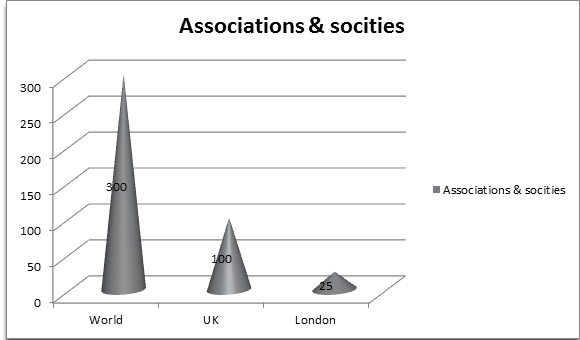
Hospitals Associated with Neonatology and Perinatology
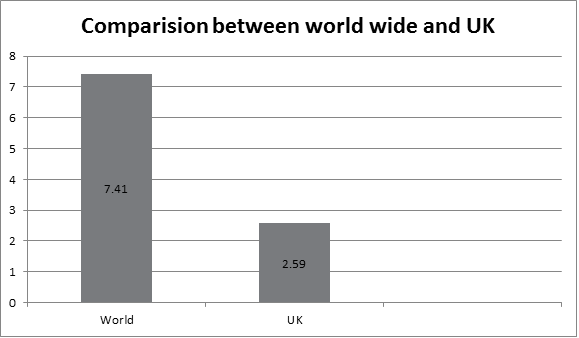
Universities Associated with Neonatology and Perinatology
In London, there are approximately about 45 Universities which include Neonatology research. In UK alone there are 134 Universities and globally there are about 1367 universities which include this research
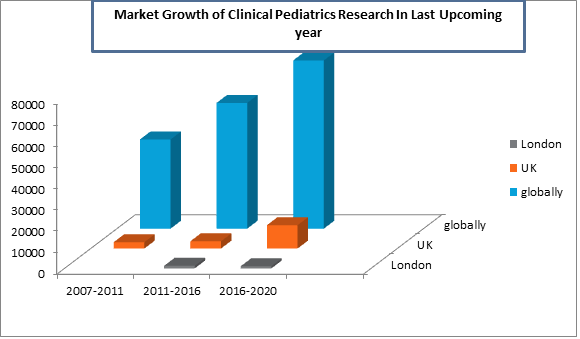
Learn More
Neonatology Universities:
University College London | Yale University | Neonatology Conferences | Harvard University | Duke University | National University of Singapore | University of Edinburgh | Pediatrics Conferences 2019 USA | The University of Tokyo | University of Pennsylvania | University of Washington | Perinatology Conferences | Cornell University | Columbia University | University of Copenhagen | Ludwig-Maximilians-Universität München | National Taiwan University | Pediatrics Conferences 2019 Asia | Neonatology 2019 | New York University | The University of New South Wales | University of Glasgow | Uppsala University |University of Cambridge | University of Oxford | Pediatrics Conferences 2019 Europe Massachusetts Institute of Technology | Neonatology Conferences 2019 USA | Stanford University | Johns Hopkins University | Neonatology Conferences 2019 UK | Pediatrics Conferences 2019 Middle East | Karolinska Institute | University of California | University of California | Imperial College London | The University of Melbourne | University of California Berkeley | University of Toronto | University of California San-Diego | Perinatology Conferences Asia 2019 | Pediatrics Conferences 2019 Canada | The University of Sydney | King’s College London | Pediatrics Conferences | The University of Manchester
Europe Neonatal Universities:
University of Graz | Pediatrics Conferences | University of Innsbruck | Johannes Kepler University | Pediatrics Conferences 2019 Japan | Ghent University | University of Split| University of Zagreb | Charles University | Palacký University | Neonatology Conferences | University of Pardubice | Perinatology Conferences | University of Copenhagen | Aalto University | University of Grenoble | Pediatrics Conferences 2019 Australia | Lille Univeristy | University of Lyon | Chimie paris tech | Laboratory Analytical Sciences Bio-analytics and Miniaturization | Neonatology 2019 | University of Poitiers| University of Pau and Adour Coukntry | Adolescent medicine Conferences | University of Reims Champagne-Ardenne | Child abuse pediatrics Conferences | University of Strasbourg | University in Aachen| University of Bayreuth | Neonatology Conferences 2019 USA | | Technical University of Berlin | Free University of Berlin | Neonatology Conferences 2019 UK | Ruhr University Bochum | Perinatology Conferences Asia 2019 | University of Bonn| University of Alicante | Pediatrics Conferences | University of Barcelona | Neonatology Conferences | University of the Basque Country | University of Cádiz | University of Extremadura
USA Neonatal Universities:
Brigham Young University | California State University | Neonatology Conferences | California State University | Case Western Reserve University | Clarkson University | Pediatric allergy Conferences | Cleveland State University | Perinatology Conferences | Florida State University | Neonatology 2019 | Georgetown University | The George Washington University | Neonatology Conferences 2019 USA | Pediatric cardiology Conferences |Governors State University | Neonatology Conferences 2019 UK | Howard University | Illinois Institute of Technology | Indiana University | Kansas State University | Perinatology Conferences Asia 2019 | Massachusetts Institute of Technology | Stanford University | Johns Hopkins University | Pediatric cardiac critical care Conferences | Northeastern University | Old Dominion University | Oregon State University | Pediatric critical care Conferences | Purdue University | New Brunswick Piscataway | Seton Hall University | Pediatrics Conferences | Neurocritical care Conferences | South Dakota State University | Stevens Institute of Technology | Tufts University | University of Cincinnati | University of Georgia
Asia Neonatal Universities:
Nanyang Technological University | Pediatrics Conferences | Tsinghua University | Pediatric emergency medicine Conferences | National University of Singapore | Peking University | Pediatric endocrinology Conferences | University of Tokyo | Perinatology Conferences Asia 2019 | Zhejiang University | Nanjing University | Kyoto University | Fudan University | Pediatric gastroenterology Conferences | University of Science and Technology of China | Osaka University | Transplant hepatology Conferences | Korea Advanced Institute of Science and Technology | Neonatology Conferences 2019 UK | East China University of Science and Technology | Dalian University of Technology | Xiamen University | Jilin University | Neonatology Conferences 2019 USA | Nankai University | Tohoku University | National Taiwan University| Seoul National University | Neonatology 2019 | Shanghai Jiao Tong University | Pediatric hematology Conferences | King Abdullah University of Science & Technology | Hong Kong University of Science and Technology | Perinatology Conferences | National Tsing Hua University | Neonatology Conferences
Neonatal Societies:
European Pediatric Neurology Society (EPNS) | Neonatology Conferences | European Society of Pediatric Neonatal and Intensive Care (ESPNIC) | Perinatology Conferences | Pediatric infectious disease Conferences | European Society for Child and Adolescent Psychiatry (ESCAP) | Neonatology 2019 | European Academy of Pediatrics (EAP) | Neonatology Conferences 2019 USA | European Society of Pediatric Neurosurgery (ESPN) | Pediatric Nephrology Conferences | European Society of Pediatric Research (ESPR) | Neonatology Conferences 2019 UK | Czech Pediatric Society (CPS) | Pediatric oncology Conferences | European Academy of Pediatric Societies (EAPS) | Perinatology Conferences Asia 2019 | European Association of Pediatric Education (EAPE) | Pediatric Pulmonology Conferences | European Pediatric Association (EPA/UNESPA) | Pediatrics Conferences | European Confederation of Primary Care Pediatricians (ECPCP) | Pediatric Rheumatology Conferences | Jordan Pediatric Society (JPS)
Paediatrics Hospitals:
Academic Hospital University of Ieuven | Children Center Magdeburg | Child Neurology Conferences | Canada Children’s & Women’s Hospital | Neonatology Conferences | Centennial Hills Hospital | Social pediatrics Conferences | Horizon Specialty Hospital | John Hopkins Medical Institutions | Child psychiatry Conferences | Kindred Hospital Las Vegas-Sahara | Perinatology Conferences | Lifecare Complex Care Hospital at Tenaya | Mayo Clinic, Rochester, Minnesota | Pediatric anesthesiology Conferences | New York-Presbyterian University Hospital of Columbia and Cornell | North Vista Hospital | Neonatology 2019 | North-Western Memorial Hospital, Chicago | Phoenix Children’s Hospital Foundation | Pediatrics Conferences | UC Davis Children’s Hospital | Texas Children’s’ Hospital | Children’s’ Hospital of the Holy Trinity | Erasmus MC Pediatric Intensive Care | Free University Hospital | Pediatric dermatology Conferences | Garrahan Pediatric Hospital | Jheronumus Bosch Medical Centre | Leiden University Medical Centre | Migrant-Friendly Hospitals | Neonatology Conferences 2019 USA |Pediatric-Neonatologist at Rijnstate | Pediatric gynecology Conferences | P&A Kyriakou Childrens’ Hospital, Athens | Spaarne Ziekenhuis Medical Centre | St. Elizabeth Hospital | St. Radbound University Hospital | Neonatology Conferences 2019 UK | Stanford Medicine | University of Pediatric Hospital Ljubljana | University Medical Center Groningen | Pediatric neurosurgery Conferences | University Medical Center Utrech | Wilhemina Children’s Hospital | VU University Medical Center Amsterdam | Perinatology Conferences Asia 2019
Pediatrics Industries:
Abbott Laboratories | Neonatology Conferences | Amgen | AstraZeneca | Biogen Idec | Perinatology Conferences | Boehringer Ingelheim | Bristol Myers Squibb | Celgine Corporation | Pediatric ophthalmology Conferences | Eli Lilly & Co | Neonatology 2019 | European Commission | Gilead Sciences | Neonatology Conferences 2019 USA | Industry ARC | Johnson & Johnson | Neonatology Conferences 2019 UK | Mead Johnson Nutrition | Neonatology Conference | Merck & Co | Novartis | Novo Nordisk | Pediatric surgery Conferences | Ortho Europe | Parabase Genomics | Pediatric urology Conferences | Pharma Tech | Perinatology Conferences Asia 2019 | Research and Diagnostic Antibodies | Sanofi | Savion Advanced Patient Care | Siemens AG | Perinatology Conference | Teva Pharmaceuticals | Pediatrics Conferences | Varian Medical Systems
Journals of Neonatal and Perinatal Care:
Journal of Pediatrics | Journal of Paediatrics and Child Health | Pediatrics and Adolescent Medicine | Neonatology Conferences | Journal of Pediatric Health Care | Journal of Pediatric Psychology | Pediatric Nutrition Conferences | Open Journal of Pediatrics | Clinical Pediatrics | Pediatric Annals | The Pediatric Infectious Disease Journal | Perinatology Conferences | Journal of Developmental & Behavioral Pediatrics | Journal of Pediatric Gastroenterology and Nutrition | Hospital Pediatrics | Journal of Pediatric Surgery | International Journal of Pediatrics | International Journal of Contemporary Pediatrics | Clinical Practice in Pediatric Psychology | Journal of Pediatric Orthopaedics | Neonatology 2019 | Journal of Pediatric Sciences | International Journal of Clinical Pediatrics | Pediatric Research | Pediatric Critical Care Medicine | Pediatric Health Conferences | International Journal of Pediatric Endocrinology | Neonatology Conferences 2019 USA | Pediatric Physical Therapy | Journal of Clinical Chiropractic Pediatrics | Pediatric Meetings 2019 | Journal of Pediatrics and Neonatology | Pediatric Reports | Molecular and Cellular Pediatrics | Pediatric Neurosurgery | Journal of Pediatric Health, Medicine and Therapeutics | Pediatric Emergency Care | Journal of Pediatric Urology | Journal Pediatrics and Child Nutrition | Neonatology Conferences 2019 UK | World Journal of Clinical Pediatrics | Pediatric Rheumatology | Pediatric Anesthesia and Critical Care Journal | Journal of Pediatric Rehabilitation Medicine | Pediatric Nursing Journal | International Journal of Pediatrics and Child Health | Pediatrics and Neonatal Biology | Journal of Pediatric Neurosciences | Neonatology Conference | Journal of Comprehensive Pediatrics | International Journal of Pediatrics & Neonatal Care | Journal of Pediatric and Neonatal Individualized Medicine | Journal of Pediatric & Adolescent Gynecology | Perinatology Conferences Asia 2019 | Journal of Pediatric Dentistry | Perinatology Conference | Journal of Pediatric, Maternal & Family Health | International Journal of Integrative Pediatrics and Environmental Medicine | Journal of Pediatric Oncology | Paediatrics and Child Health | Journal of Pediatrics Review | Pediatrics Conferences

